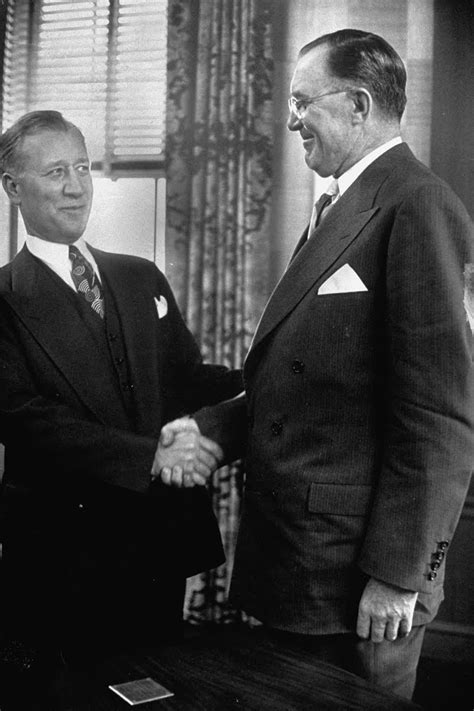A Quote by Henry Wadsworth Longfellow
Every man is in some sort a failure to himself. No one ever reaches the heights to which he aspires.
Related Quotes
Every work of art reaches man in his inner powers. It reaches him more profoundly and insidiously than any rational proposition, either cogent demonstration or sophistry. For it strikes him with two terrible weapons, Intuition and Beauty, and at the single root in him of all his energies... Art and Poetry awaken the dreams of man, and his longings, and reveal to him some of the abysses he has in himself.
We need from every man who aspires to leadership-for himself
and his company-a determination to undertake a personal
program of self-development. Nobody is going to order a man
to develop .... Whether a man lags behind or moves ahead in
his specialty is a matter of his own personal application. This is something which takes time, work, and sacrifice. Nobody can do
it for you.
In the mythic tradition, the Mountain is the bond between Earth and Sky. Its solitary summit reaches the sphere of eternity, and its base spreads out in manifold foothills into the world of mortals. It is the way by which man can raise himself to the divine and by which the divine can reveal itself to man.
Every man has some reminiscences which he would not tell to everyone, but only to his friends. He has others which he would not reveal even to his friends, but only to himself, and that in secret. But finally there are still others which a man is even afraid to tell himself, and every decent man has a considerable number of such things stored away. That is, one can even say that the more decent he is, the greater the number of such things in his mind.
Every man is prompted by the love of himself to imagine that he possesses some qualities, superior, either in kind or degree, to those which he sees allotted to the rest of the world; and, whatever apparent disadvantages he may suffer in the comparison with others, he has some invisible distinctions, some latent reserve of excellence, which he throws into the balance, and by which he generally fancies that it is turned in his favour.
Did you ever hear of a man who had striven all his life faithfully and singly towards an object, and in no measure obtained it? If a man constantly aspires, is he not elevated? Did ever a man try heroism, magnanimity, truth, sincerity, and find that there was no advantage in them,--that it was a vain endeavor?
The African Americans' story is one that seems to be a repeated commitment to a scenario for success and failure. With each failure, the blow is that much more traumatizing until finally one reaches a point where there is to some degree an internalization, skepticism, fatalism, and expectation that it isn't going to work.
Philosophers have long conceded, however, that every man has two educators: 'that which is given to him, and the other that which he gives himself. Of the two kinds the latter is by far the more desirable. Indeed all that is most worthy in man he must work out and conquer for himself. It is that which constitutes our real and best nourishment. What we are merely taught seldom nourishes the mind like that which we teach ourselves.






































